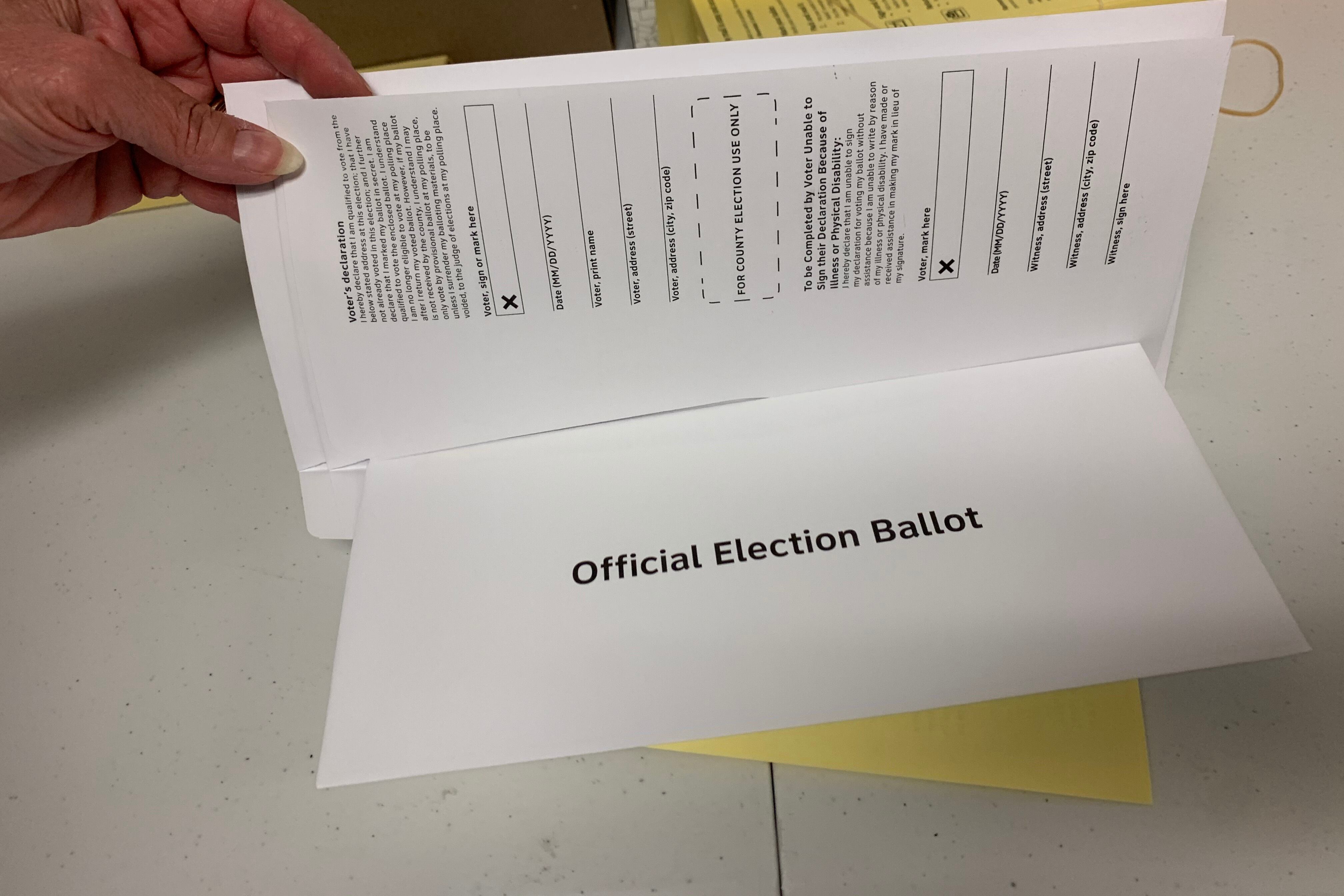Votebeat is a nonprofit news organization reporting on voting access and election administration across the U.S.
Pennsylvania’s patchwork of ballot curing policies will remain in place, at least for now, following a decision from a state appellate court last week.
Commonwealth Court Judge Ellen Ceisler dismissed a case brought by the Republican National Committee last year arguing that counties allowing voters to fix errors on their mail ballot had violated the state’s election code. The court made no determination on the facts of the case, but ruled the Commonwealth Court was not the proper venue.
The RNC is still weighing whether it will appeal Ceisler’s ruling to the State Supreme Court, but local elections directors worry the decision will open counties up to more lawsuits in local courts.
In Pennsylvania, people who vote by mail are required to seal their ballot in an interior, secrecy envelope, and sign and date an outer envelope. If a person fails to do so, county election officials must throw the ballot out.
Some counties in the state, however, notify voters when there is a disqualifying issue with their mail ballot.
According to a survey from Votebeat and Spotlight PA, 12 counties allowed ballot curing in the November 2022 election. Eight of those counties notified voters of errors.
Other counties, meanwhile, don’t allow voters to fix their mail ballots, creating an unequal landscape for voters across the state.
In 2022 the RNC had named then-Acting Secretary of the Commonwealth Leigh Chapman, and later her successor, Al Schmidt, as parties in the case, and argued that county boards of elections were regional organs of the Department of State and therefore state agencies, giving the Commonwealth Court jurisdiction.
But Ceisler ruled that county election offices are actually local government agencies, meaning the court did not have jurisdiction to hear the underlying arguments. Instead, she wrote, county courts are the proper venue.
Forrest Lehman, elections director in Lycoming County, which allowed curing, thinks the ruling is going to create more confusion. Since parties are now directed to file suit at the local level, he thinks county election departments will see an increase in lawsuits from both those opposed to and in favor of ballot curing.
“Now no matter what a county does, someone will sue you,” he said.
Ceisler “used this jurisdictional ruling to avoid the underlying issue,” said Vic Walczak, legal director of the American Civil Liberties Union of Pennsylvania.
The RNC argued that viewing mail-in ballots to determine whether they lacked a signature or proper date constituted an “inspection” of the ballots, which is prohibited before Election Day.
“This is the equivalent of people forgetting to push the ‘vote’ button and the poll workers saying ‘hey, you forgot to push the vote button,’” Walczak said, adding that if counties don’t permit curing of such errors, eligible voters will have their votes discarded.
For now, the legal question posed by the lawsuit remains unsettled. Recent lawsuits brought at the county level regarding recount petitions resulted in contradictory rulings from the Commonwealth Court, and that could happen on curing, too.
“The underlying issue is super important and needs to be decided soon,” Walczak said. “Right now where the law stands is that some countries allow voters to cure, some notify them of errors, and some don’t do either. The law is unclear and we really need a court to say what the law is around notice and cure.”
Carter Walker is a reporter for Votebeat in partnership with Spotlight PA. Contact Carter at cwalker@votebeat.org.






